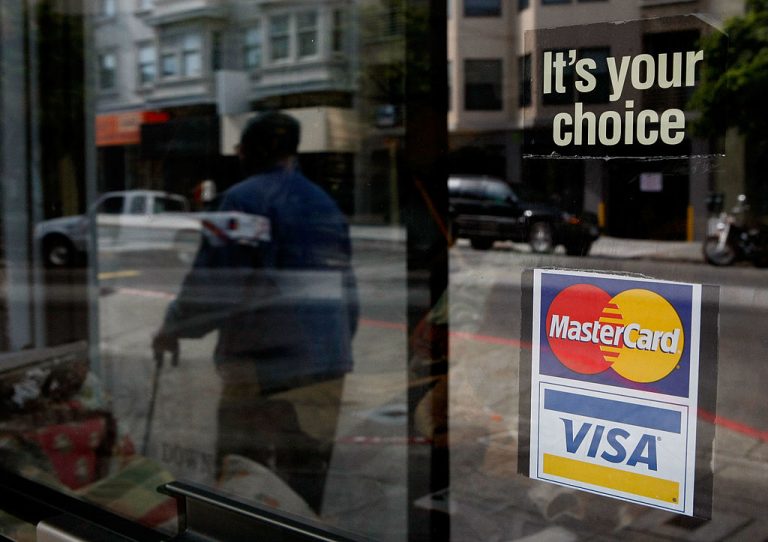As North American households struggle to survive amid wildly surging inflation caused by pretexts of supply chain issues arising from Coronavirus Disease 2019 (COVID-19) and the Russia-Ukraine conflict, the only news seems to be more bad news as Mastercard and Visa get set to hike merchant fees starting next month, according to a March 8 Wall Street Journal exclusive.
Based on “people familiar with the matter and a document viewed by The Wall Street Journal,” the portion of fees set to rise at the start of April accounting for “most of the increase” is a vigorish collected by banks known as “interchange fees.”
But the hike is both planned and well known in advance as the payment processors announced the deferral of the increase last year, citing clemency to businesses affected by the pandemic as the cause.
RELATED READING:
- Russia Turns to Chinese Services as Mastercard, Visa, American Express Cancel the Kremlin
- Workers United Starbucks NLRB Complaints Underscore Red Hues of Unionization Movement
- Cargo Containers: A Closer Look at the Box that Blocks Our Supply Chain
- Target Raises Minimum Hourly Wage for Some Positions to $24
Interchange fees are an exceptional source of pain to businesses. WSJ stated that U.S. retailers alone coughed up a staggering $55.4 billion in interchange fees in 2021, a number that has doubled since 2012.
Success
You are now signed up for our newsletter
Success
Check your email to complete sign up
Today, many consumers rely heavily on spending via credit cards that offer rewards programs that are sometimes extensive. Behind the scenes, however, those programs are subsidized through charging additional fees to the merchant.
WSJ says that both Visa and Mastercard have an “honor all cards” rule, which prohibits merchants from denying service to holders of cards that generate excess fees.
In a June of 2020 article on the subject, the Journal stated that the costs are so extensive that merchants remit approximately two percent of their total sale in interchange fees.
That figure expands to 3 percent when “more generous reward cards” are swiped.
The piece illustrated to what extent interchange fees affect business owners when it used a specific example provided from an interview with the owner of a D.C.-area indie coffee shop, “The shop, which roasts its own coffee beans, spent less on green beans last year ($12,827) than on the card-processing fees ($18,645) it pays to the financial institutions that enable cashless payments.”
While the owner said he felt the expenditure was “depressing,” a fellow at U.S. economic think tank characterized the fees as a “giant reverse Robin Hood moving billions of dollars a year” because the majority of cardholders with meaningful rewards program were defined by WSJ as people who “often make hundreds of thousands of dollars a year.”
Naturally, such exceptional costs of doing business are not merely absorbed by the shopkeep, but are calculated for and passed on to customers and reflected in the cost of goods and services.
However in a 2021 article, WSJ noted a growing trend of businesses who simply charge an additional fee for credit card purchases. Although it was estimated that only the vast minority—5 percent—of America’s 8 million small businesses that accept card payments were openly charging an additional fee, the figure had more than doubled from 2 percent five years earlier.
WSJ noted, though, that interchange fee hikes would not be applied universally, and may actually result in lower costs for some businesses.
A Visa spokesperson was paraphrased by the outlet as stating, “merchants can avoid the higher fees if they provide certain transaction data and use its token service that masks card numbers.”
While what “certain transaction data” entailed was not elaborated on, the Visa Token Service is a utility that provides online retailers with the ability to obfuscate their customer’s credit card numbers with hashes for the purpose of reducing a potential fraud vector in the event of a database breach.
Although Mastercard intends to increase fees on “more than a dozen in-store purchase categories,” including transactions at “small and midsize supermarkets” and “in-store general retail fees,” the company nonetheless said it will lower costs for “all merchants with transactions below $5 as well as hotels, casual dining, daycare facilities and other sectors that were hit hard by the pandemic,” stated the Journal.
Visa will likewise do its part by reducing fees for “online and in-store purchases at some small merchants with $250,000 or less in annual consumer credit-card volume,” and will completely exempt “some retail categories, like convenience or grocery stores, restaurants and gas stations” from rate hikes.
WSJ said that a Visa spokesperson claimed that more than 90 percent of U.S. businesses would enjoy a ten percent fee reduction as a result of the restructuring plan.
















